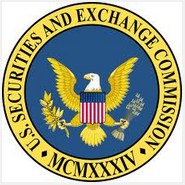T.J. Maloney and the private equity firm he controls, Lincolnshire Management, are under scrutiny once again. The last time one may have heard about Lincolnshire was in 2011 when they ran into some trouble after gaining $99 million in a lawsuit. Trouble is not something you expect when you have a courthouse win of that size and to add to the surprise of the predicament, it arrived from an unexpected source to boot. Lincolnshire’s investors themselves filed a suit against the private equity firm arguing that they were not given their fair share of the legal gains. That case seems to have been more bark than bite, however, as the case remains pending to this day.
This time around, the Securities and Exchange Commission is the one bringing the suit and they have managed to do more than just bark. In fact, Lincolnshire has agreed to pay 2.3 million dollars to settle with the SEC. The charges stated that Lincolnshire had improperly allocated expenses between two funds that it controlled. Both of these funds were acting as owners in what, in the eyes of the SEC, was the same company. Lincolnshire, for one reason or another, decided that it would exchange resources between these two companies as if they were the same. For example, one company, Peripheral Computer Support paid the entire payroll and 401(k) administrative expenses for employees of both companies.
Now, this would not be an issue if both companies decided to do this to their mutual benefit. The issue arises when one company clearly suffers while the other profits from such a relationship. As the co-chief of the asset management unit in the enforcement division of the SEC Julie Riewe said, “Lincolnshire’s decision to integrate two portfolio companies owned by separate private equity funds resulted in the misallocation of expenses between the two companies. Advisers that commingle assets across funds must do so in a manner that satisfies their fiduciary duties to each fund and prevents one fund from benefiting to the detriment of the other.”
Because the SEC could prove that Computer Technology Solutions – the name of the other company – was benefiting and Peripheral Computer Support was suffering, or perhaps because Lincolnshire did not want the SEC to look any deeper, Lincolnshire agreed to pay the damages and settle the dispute. Hopefully, Lincolnshire doesn’t have any more run-ins with the law for a few years, their reputation could use a break.
